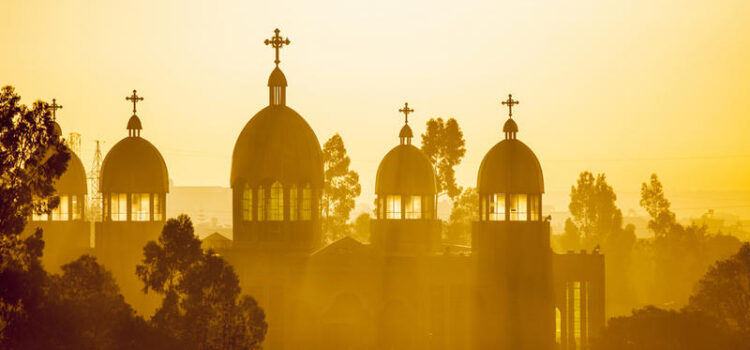Ethiopian Airlines is reasonably priced and has fairly comprehensive domestic services. Flights are often overbooked, so it is essential to reconfirm your tickets at least a day in advance and show up at the airport on time. If you forget to reconfirm, they may assume you aren’t going to show up and give away your seats.Tip: Booking tickets for Ethiopian Airlines on-line works out to be very expensive compared to booking at their office in Addis Ababa. Even better: If you have booked your international trip to Ethiopia via Ethiopian Airlines’s webpages you will get a 50% discount on domestic flights.Ethiopian buses fit into one of the following categories: the ubiquitous minibuses or matatus (typically Toyota vans that carry up to 14 people) that operate throughout the region; small to large sized passenger buses called “Higer bus” (named after the manufacturer) that often travel between regions (“1st level” to “3rd level” indicating the class); luxury buses (Korean modern standard buses) going between the main cities, and the large (often double-jointed) red Addis Ababa city buses.There is a comprehensive network of cheap Higer buses along the major roads, although these are slow and basic. Buses travelling shorter distances generally leave whenever they have filled up with passengers (in practice, this means once an hour or so). Buses do not travel at night; they will stop before sundown in a town or village with accommodation for the passengers, or, between Dire Dawa and Djibouti, just in the plain countryside. Between some cities (eg, Adama and Addis Ababa), minibuses will run after the larger buses have stopped for the night. Everyone on the bus must have a seat by law – this prevents overcrowding, but often makes it difficult to catch a bus from an intermediate point on a route. If planning to travel by bus, keep in mind that almost all the vehicles are old and very dusty and some of the roads are in bad condition. The bus stations usually open somewhere around 05:00. If you are catching an early morning bus, you should get to the station at 05:00. They are very chaotic first thing in the morning, and many buses will sell out of seats before they leave at about 06:00. To make things easier and less stressful, you can often buy a ticket in advance. In smaller cities, you can often buy your ticket from the conductor when the bus arrives from its previous trip the afternoon before you travel. Even if you already have a ticket, arrive early and claim a seat as soon as possible. If you don’t have a ticket, you will have to ask people to show you the correct bus (unless you can read Amharic). In this case, don’t waste time trying to buy a ticket from the window or from the bus conductor—push your way on board the bus and claim a seat! The conductor will sell you a ticket later. Medium sized backpacks can usually be squeezed under the seats, but large packs and most luggage will have to go up on the roof. Claim your seat before you worry about your luggage. Luxury buses however have a really professional approach with both numbered seating and dedicated luggage compartments under the bus. Anyone assisting you with your luggage, including the person passing it up to the conductor’s assistant on the roof, will expect a small tip (around 2-3 birr).Although more expensive than public transport, renting a car is a good way to explore Ethiopia. You can take small aircraft to expedite your tour, but you will see more of the scenery if you travel by car. However, there are few rent-a-car services in Ethiopia outside of Addis Ababa so you may prefer to depend on the services of touring companies that offer cars and 4x4s complete with an experienced local driver. Petrol costs 21 birr a litre. Make sure to check the pump is zeroed before re-fuelling starts.








